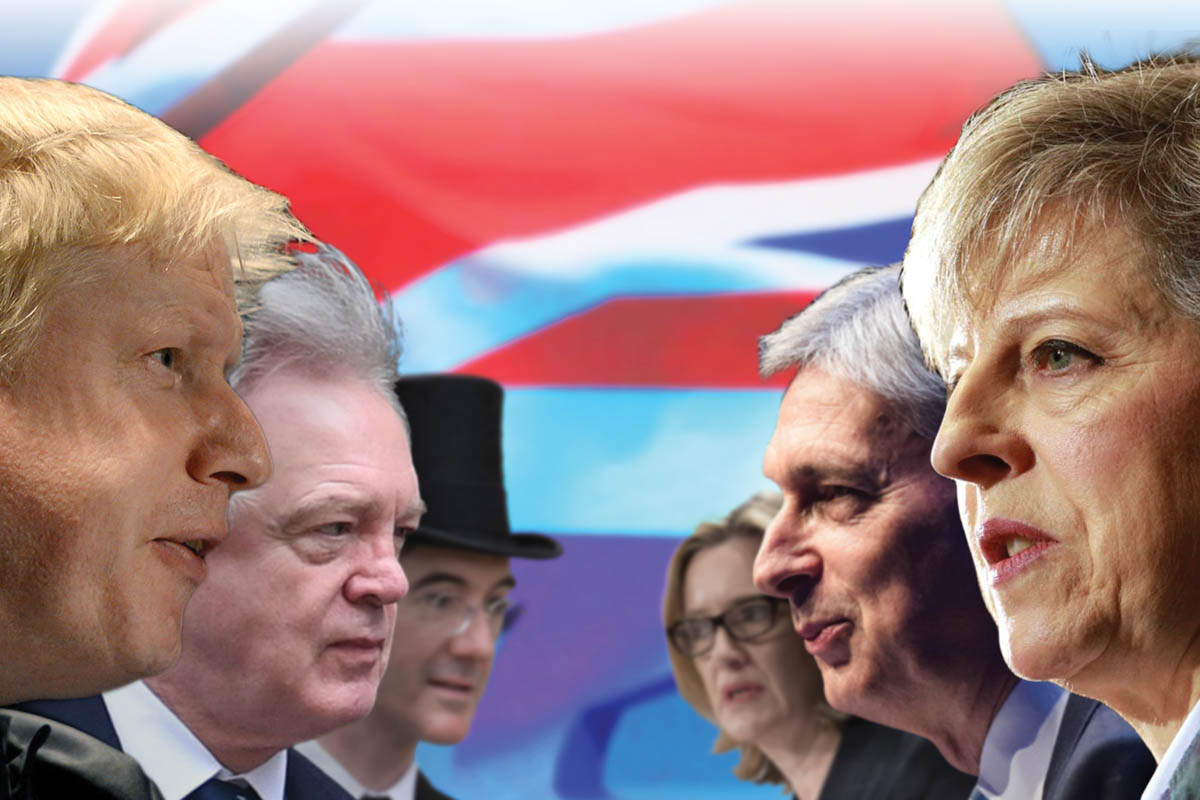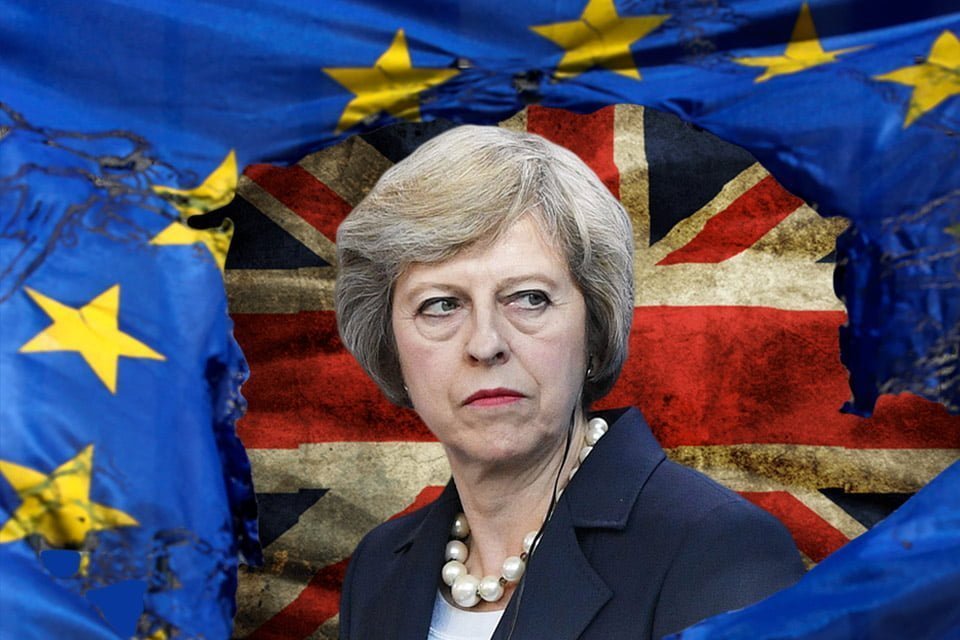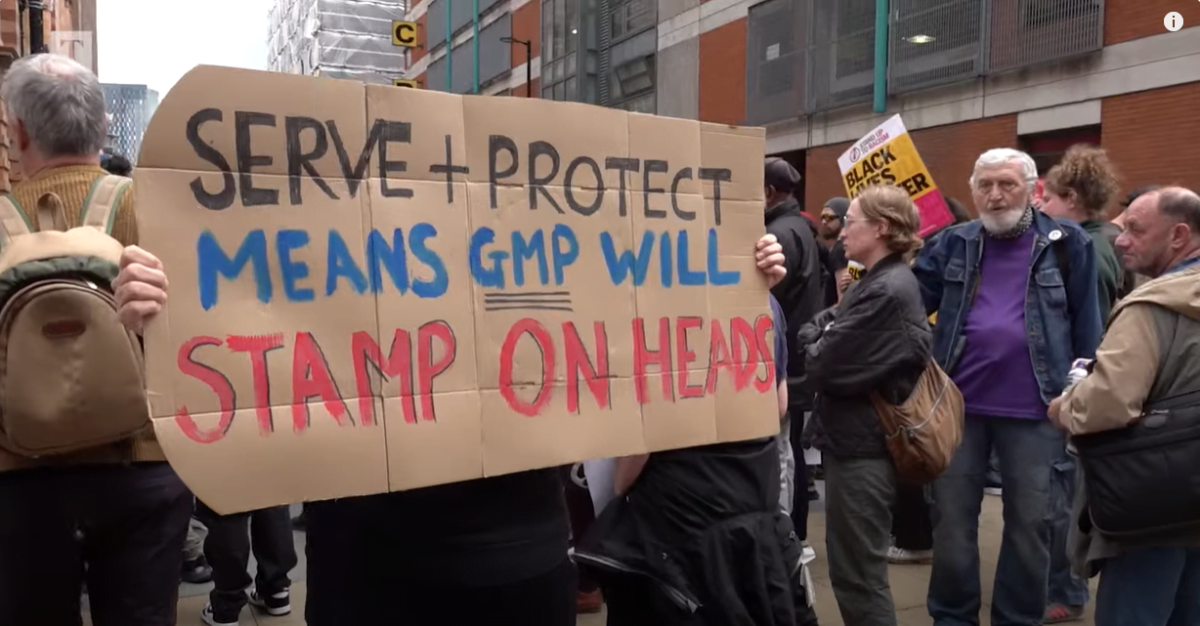The Prime Minister has weathered the recent Brexit storm for now. But far greater winds and waves lie ahead.
After days of fraught negotiations, Theresa May survived a crunch Brexit vote in the House of Commons today (20 June), which had threatened to bring the simmering civil war in her party to a head. But this most recent compromise will only prepare an even deeper political crisis in future.
Meaningful vote
The latest split in the Tory Party emerged over the question of parliament having a “meaningful vote” on any Brexit deal before it is ratified.
An amendment passed by the House of Lords, and supported by a significant number of pro-EU Tory MPs, would have given parliament the power to direct the government on the course of Brexit negotiations if it rejects the deal put forward, or if no deal is reached, effectively eliminating the possibility of a “no-deal” Brexit.
Tory Brexiteers sounded the alarm, crying out that such an amendment would deprive British negotiators of the threat to walk away without a deal if the EU does not offer concessions – the ‘nuclear’ option. And worse, it could give parliament the opportunity to force the government to accept membership of the customs union, the single market, or even overturn Brexit itself.
Meanwhile, on the other side of the Tory divide, pro-EU rebels were beating their own war drums. Justice minister, Philip Lee, resigned in the run-up to the vote, claiming he “cannot, in all good conscience, support how our country’s exit from the EU looks set to be delivered”. Dominic Grieve MP even threatened that if the amendment didn’t pass, it would risk “a motion of no confidence, which could collapse the government”.
Threat of defeat
 With up to 14 Tory MPs rumoured to be supporting the amendment, May faced a humiliating defeat. Trapped between two utterly irreconcilable poles (again), May did what she does best: she fudged, temporarily appeasing her Tory rebels with a promise to draft another amendment, incorporating their demands. But while this tactic managed to block the amendment on 11 June, the respite it provided proved to be extremely brief.
With up to 14 Tory MPs rumoured to be supporting the amendment, May faced a humiliating defeat. Trapped between two utterly irreconcilable poles (again), May did what she does best: she fudged, temporarily appeasing her Tory rebels with a promise to draft another amendment, incorporating their demands. But while this tactic managed to block the amendment on 11 June, the respite it provided proved to be extremely brief.
Under pressure from David Davis, who represents a number of pro-Brexit Tories, the government’s promised amendment was changed to offer only a vote “on neutral terms”, completely removing the ability to direct the government along an alternative course.
Enraged by May’s betrayal, the Tory rebels hardened their position. On 18 June, the House of Lords voted by a large majority to send almost exactly the same amendment back to the Commons for a decisive vote on 20 June, with Tory peer, Viscount Hailsham declaring that “it’s a matter of honour”.
Defeat in the Commons could have provoked an uprising by hard Brexit Tories, which could have engineered the government’s collapse. In the end, the result was far less dramatic, as the Tories’ desire for unity prevailed over their internal division – for now.
Rebels retreat
On the day of the vote, Dominic Grieve, who had initially led the charge over the Lords’ amendment, suddenly struck a conciliatory tone. At the eleventh hour, the pro-EU Tory MP announced that he would vote for the government’s amendment on the strength of a statement to the effect that “it would be up to the Speaker to decide whether MPs could amend a motion if no deal is reached by 21 January”. Hardly the full-blooded rebellion of the ‘sensible Tories’ we’d been led to expect.
Amid typically parliamentarian scenes of banter over French holiday homes and the length of Whitsun, the Tory rebellion melted away, giving the government a majority of 16 to reject the Lords’ amendment.
But while Theresa May has managed to avoid defeat this time, she faces a series of equally important votes on customs and trade before the end of the summer, along with a take-it-or-leave-it vote on the final deal at the end of the year.
On these occasions, however, the only means by which MPs would have to force the government’s hand over Brexit – as acknowledged by Grieve himself – would be a motion of no confidence. But with this would come the threat of a snap general election and the possibility of putting Jeremy Corbyn in Downing Street.
By kicking the can down the road, both the government and the rebels have prepared the way for an even deeper crisis. Not a single problem exposed by Brexit has been resolved. Ultimately, May will either force through a deal which pleases no-one, or collapse in the face of a parliamentary revolt. In either case, the Tory Party may not survive.
Pressure mounts
Beneath all the parliamentary pantomime a clear and unstoppable trend is emerging. Big business is becoming increasingly nervous about the prospect of a hard Brexit. The disruption to trade and potential tariffs caused by a hard Brexit would wipe out profits in various sectors. Supermarkets in particular would face estimated profit cuts of over 100%.
Already, several important companies, including BP and Vodafone, have warned that “time is running out”. A number of hedge funds have already begun moving their operations abroad, dealing a blow to the City of London.
Reflecting the pressing interests of big business and the intractable contradiction of the Irish border, parliament and the government is being pushed – slowly, painfully – towards the softest possible Brexit.
At every turn, however, the government is being clawed back to the brink by its own base, without which it cannot stay in power. During today’s debate, for example, several pro-EU Tories complained of threats of deselection and “bullying they had received” from the Tory ranks. This contradiction cannot be resolved; ultimately one side will win out with explosive consequences.
But what the most recent rebellion (or lack of one) shows, is there is one thing that scares the Tories more than a cliff-edge Brexit – the coming to power of a Corbyn government. Trapped in equal terror between its own rabid base and the prospect of a fresh election, the pro-EU wing of the Tories has once again stepped back from a decisive showdown. The only question is how long before events force it to take the plunge.
Labour rebels
 The Labour Party also faced its own “rebellion” on 11 June, with 89 Labour MPs choosing to defy the whip over a different amendment, binding the government to seek entry into the European Economic Area. Of the 89 rebels, 74 voted in favour and 15 voted against, while the rest of the party abstained along with the leadership.
The Labour Party also faced its own “rebellion” on 11 June, with 89 Labour MPs choosing to defy the whip over a different amendment, binding the government to seek entry into the European Economic Area. Of the 89 rebels, 74 voted in favour and 15 voted against, while the rest of the party abstained along with the leadership.
This only goes to show that the Parliamentary Labour Party is subject to exactly the same pressures as their Tory counterparts. Indeed, many right-wing Labour MPs have more in common with Tories like Dominic Grieve and Anna Soubry than with the rest of their own party, especially when it comes to defending the “national interest”, i.e. the defence of British Rent, Interest and Profit.
Given the opportunity, these Blairite MPs would leap at the chance to set up a “sensible” centre-ground party with their Liberal and pro-European Tory friends. And they could certainly rely on the backing of millionaire tycoons like Lord Sainsbury. Already, rumours abound that Chuka Umunna MP is talking of setting up such a party, calling it, appropriately, “Back Together”.
A socialist alternative
With a deep crisis looming, we must be absolutely clear: the dead end of British capitalism is preparing the destruction of its political establishment. As the old order tears itself apart, all capitalism can offer workers and youth is more cuts, more bigotry and more suffering.
We must organise across the entire labour movement to bring down May’s crumbling government. In its place, we need to bring Corbyn to power at the head of a socialist Labour government. This must set itself the task of carrying out the nationalisation of the commanding heights of the economy as part of the socialist transformation of society.
This is the only real alternative to the Tories’ Brexit and the rotten capitalist system.






